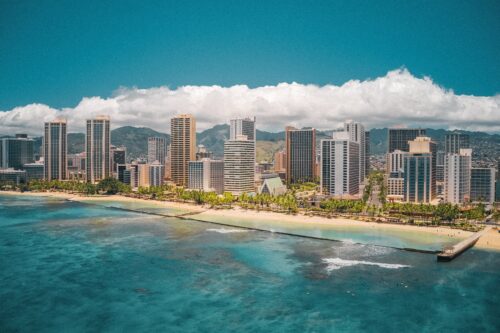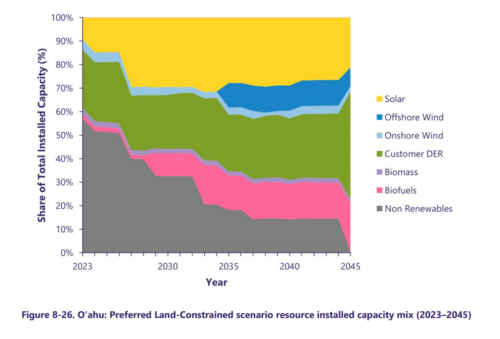
Hawaiian Electric recently filed its Integrated Grid Plan: A pathway to a clean energy future, developed with support from E3. The IGP explores the steps needed to achieve net zero electric-sector emissions and 100% renewable electricity generation by 2045. Hawaiian Electric has been developing the IGP since 2018 and the final report incorporates feedback from its stakeholder council, technical advisory panel, working groups, and community meetings.
E3 supported Hawaiian Electric and the IGP by developing and maintaining RESOLVE electric-sector planning models for the islands of Oʻahu, Hawaiʻi, Maui, Lānaʻi, and Molokaʻi. RESOLVE is a capacity expansion model developed by E3 to support long-term planning for high-renewable electric systems subject to policy and reliability constraints. In addition to modeling resource portfolios for the IGP, RESOLVE is also being used by Hawaiian Electric to evaluate proposals for energy resources submitted in response to Hawaiian Electric solicitations.
Looking forward, E3 continues to support Hawaiian Electric in implementing a resource adequacy workplan to prepare for the next cycle of IGP. In coordination with the IGP technical advisory panel, this work entails comparing the “Energy Reserve Margin” reliability framework currently used in IGP with other frameworks such as “Effective Load Carrying Capability” (ELCC). This work will utilize the RESOLVE models as well as E3’s RECAP electric reliability model, which evaluates resource adequacy on electric systems with high penetrations of renewables and battery storage. Updates from this work will be shared on the IGP Technical Advisory Panel page.
In addition, E3 recently worked with Hawaiian Electric to develop long-term, economy-wide decarbonization scenarios that meet Hawaiʻi’s 2045 net zero emissions target. This study explored the range of potential electric loads that would be consistent with economy-wide decarbonization, estimated the quantities of decarbonized fuels that may be needed where electrification is expensive or infeasible, and explored which sectors will require policy or regulatory changes to support decarbonization. Last week, E3 managing partner Amber Mahone presented findings from this initial Hawaiʻi decarbonization study at the annual Hawaii Energy Conference in Maui. The decarbonization study will be made public later this month.



